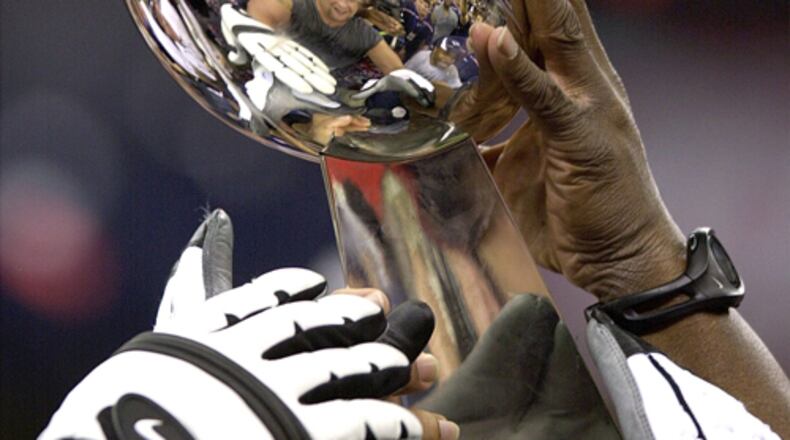As the NFL prepares for Super Bowl LIII, the pinnacle of its season, some may hear an echo from 17 years ago, when the Patriots and the Rams last met for the “Big Game.” That game came just months after the worst terrorist attack on American soil in our nation’s history; a time when — at the start of the 2001 football season — sports felt trivial against the devastation wrought by 9/11.
Coaches, players and team owners agonized over whether to play or not to play; over what was the right thing to do.
New York Jets quarterback Vinny Testaverde, his coach Herm Edwards, and New York Giants defensive end Michael Strahan spoke up on behalf of their teammates and players across the NFL. They led the charge to suspend regular play, out of respect for the dead and to give both players and fans a much-needed timeout.
When play resumed, the Patriots and the Rams emerged as the teams who would face one another at the first Super Bowl after 9/11. Both clubs return to this year’s championship as Super Bowl competitors for the first time since 2002.
The matchup reminds us of the many 9/11 connections tied to this game and these two teams.
Looking back to 2002, the Patriots bested the Rams in an emotional game where, during the halftime show, U2 performed a special tribute to the 2,977 people killed in the terror attacks. At the end of the performance, after the names of each person killed had scrolled on an enormous screen behind him, Bono opened his jacket to reveal a U.S. flag. That unforgettable moment and others in sports after the 2001 attacks are captured in the special exhibition “Comeback Season: Sports After 9/11,” currently on view at the 9/11 Memorial and Museum.
As this exhibition demonstrates, sports have the power to bring people together: to unite us regardless of race, nationality, religion, economic background or political affiliation. In the wake of the attacks, sports brought us together, helped us to heal, and at a particularly dark time, gave us all something to cheer about.
Like the players who visited Ground Zero to offer encouragement to the men and women working in the wreckage, so should we, as a nation, come together again in shared recognition of, and mutual respect for, all who are now suffering and dying from illnesses caused by exposure to toxins in and around the World Trade Center site in the aftermath of the 9/11 attacks.
A permanent tribute to these individuals is under construction at the 9/11 Memorial. This modification to the Memorial, known as the “9/11 Memorial Glade,” will also recognize the selflessness, sacrifice and perseverance of those who participated in the rescue and recovery efforts.
Our mission demands that we honor and remember; our audience demands that we also teach. Seventeen years since the Patriots and the Rams last met in the Super Bowl, there will be fans watching the game this year who have no lived memory of the 9/11 attacks. We are committed to educating this generation and those who come after about the events and the ongoing repercussions of 9/11. And we are grateful to those whose generosity helps make this possible, like the host of this year’s Super Bowl, Atlanta Falcons’ owner Arthur M. Blank, whose support through the Arthur M. Blank Family Foundation has enabled free access to workshops and tours at the 9/11 Memorial and Museum for all New York City school students and students in the tri-state area.
As we huddle with family and friends this weekend, take a moment to remember when the Patriots and the Rams met once before in the Super Bowl. It was a time when the rivalries of sports took a back seat to what connects us to one another; a moment when, in the face of unthinkable violence that threatened our nation’s security, we demonstrated compassion and affirmed that we are all on the same team.
About the Author
Keep Reading
The Latest
Featured


